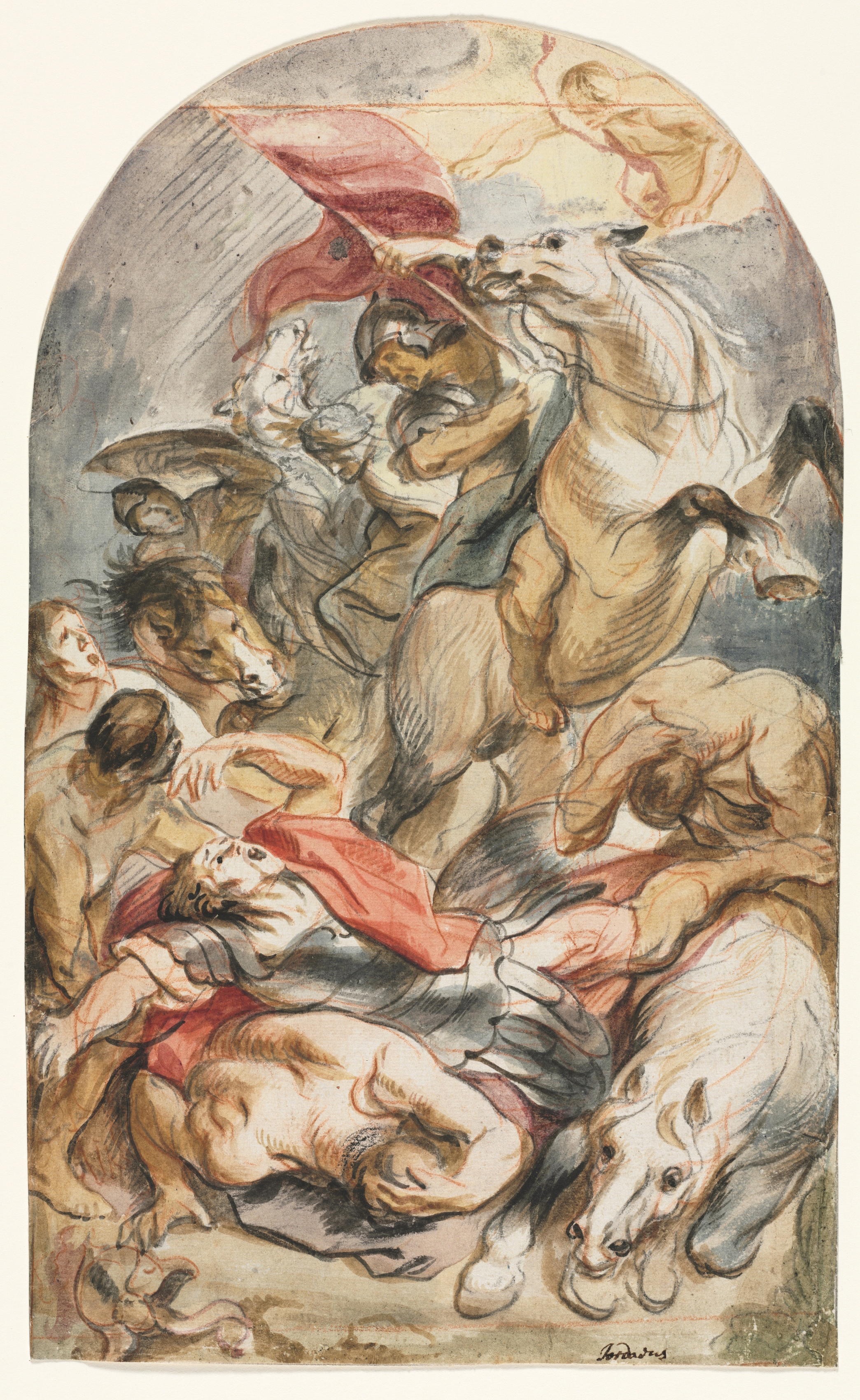TheVoices

Jacob Jordaens:
The Conversion of Saul with Horseman and Banner
(c. 1645–47)
"Better if he focuses exclusively upon making a joyful noise."
Performer Leo Kottke famously described his baritone singing voice as sounding like "Geese farts on a muggy day." I've long agreed with him, yet his singing voice seems perfectly appropriate, the perfect accompaniment to his masterful guitar playing. He plays his guitar so skillfully that any accompanying voice couldn't help but mesh well. A long line of less than perfect voices have passed in and out of notoriety in my short lifetime, so many that I marvel at how few really wonderful voices I've ever heard. Clearly, the quality of a voice and the quality of any given performance remain two very separate experiences, with the twain only rarely converging. The quirky seems to have little problem attracting an adequate crowd, and often, much more than a merely adequate one.
An unheard voice, the voice within, always accompanies the one projected over the accompanying music. The singer's self talk easily overwhelms the performance, at least in the performer's mind. Singers are little different than the rest of us, for they, too, find their recorded voice at least curious. It's clearly not the voice they hear inside their head. It holds distinctly different qualities as if an alien produced it. Regardless of how dressed up the recording might have been, conditioned with reverberation or other filters, it never sounds quite right, such that the singer might maintain the bulk of their energy mustering generous interpretations of the sounds they make. This effort can prove exhausting. One might counsel the singer to simply chill, but they cannot, for they hold the responsibility to produce the very best they've got, so their critical ears had better keep working. It's always too much work and also well worth the effort, to maintain that conversation with the voice within whenever one starts singing.
For me, this dichotomy between TheVoices, the singing voice and the voice within, presents the opportunity to exercise my generosity toward myself. Certainly, I'm giving my voice away whenever I'm performing, but that voice wasn't just sitting on some shelf waiting for me to part with it. It might just as well be steam powered, for all the machinery I have to muster to produce it, and the slightest cog out of alignment, the merest hint of my inner insecurity escaping, can significantly influence the quality of the performance. It's best when I manage to somehow transcend all of this, to more witness than manage it, when I can manage to trust the process, the hours of practice and accumulated experience, to be just aware enough and not all over myself with criticism. The critic never makes a noise yet still presumes to be able to sing significantly better than whomever's performing. He has no role anywhere near my head when I'm singing.
I envy Kottke's blithe self-characterization, for with it, he co-opts any undermining critic, especially his own. He insists that the absolute quality of his singing couldn't possibly matter. He's aware that it sounds like goose farts on a muggy day. He promises no better to himself or to the best of his audiences, and listeners will accept such terms and conditions, judging from the long lines waiting for performances from far less than perfect singers. Singing, for me, represents an opportunity to practice what I sometimes preach, which is to take this world at its face value, just where it is. I'm free to aspire to whatever heights I might desire, but I'm wise to accept whatever's in my pocket as perfectly adequate until I reach those heights. This performance might prove to be a tad more human than I'd hoped. That can't really matter much. The voice inside can shut the fuck up while I'm performing. His time for influence has already passed by then. Better if he focuses exclusively upon making joyful noises. He can return to critiquing during practice time.
©2022 by David A. Schmaltz - all rights reserved


